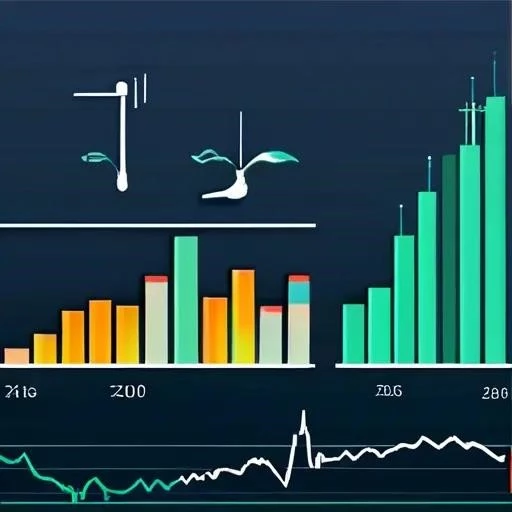Cars with allison transmission
Selecting a vehicle equipped with an Allison transmission requires careful consideration. Research the specific vehicle model’s reputation for reliability and owner reviews. Pay close attention to the year and mileage, as older transmissions may require more maintenance. Consider your budget; repairs can be costly. Prioritize a vehicle with a well-documented service history showing regular transmission maintenance.
Understanding Allison Transmissions
Allison transmissions are renowned for their durability and performance, particularly in heavy-duty applications like commercial trucks and buses. However, they’re also found in some specialized automotive vehicles. Unlike many passenger car transmissions, Allison automatics are typically heavy-duty, employing a unique torque converter and sophisticated electronic controls. Understanding their design is key to appreciating their strengths and potential weaknesses. These transmissions often feature multiple forward gears, offering smooth shifting and efficient power delivery, especially under load. The robust construction contributes to their longevity, but this also means repairs can be more complex and expensive than those for lighter-duty transmissions. Proper maintenance is paramount to maximizing their lifespan and preventing premature wear. Key components include the torque converter, planetary gearsets, clutches, and valve body, all working in concert to manage power transfer. The electronic control system monitors various parameters, adapting shift patterns for optimal performance in different driving conditions. While generally reliable, understanding the specific model and its operational characteristics is crucial for informed decision-making, especially when considering a used vehicle. Familiarize yourself with the transmission’s fluid type and recommended service intervals to ensure long-term reliability. Ignoring these aspects can lead to costly repairs or even catastrophic failure. Remember that specialized knowledge and tools are often needed for servicing these transmissions, so choosing a qualified mechanic is essential.
Factors to Consider When Buying
Purchasing a vehicle with an Allison transmission requires a more thorough assessment than a typical car purchase. Begin by carefully reviewing the vehicle’s service history. Look for meticulous records of regular fluid changes, filter replacements, and any necessary repairs. A neglected transmission is a potential financial disaster. The age and mileage of the vehicle are critical factors. Higher mileage generally increases the risk of needing significant repairs or replacements in the near future. Consider the vehicle’s overall condition; a well-maintained vehicle with a few minor cosmetic issues is preferable to one with a pristine exterior but a neglected transmission. Budget accordingly; Allison transmission repairs can be substantially more expensive than those for standard passenger car transmissions. Factor in the cost of specialized tools and expertise often required for diagnosis and repair. Research the specific vehicle model and year. Some models are known for greater reliability than others. Online forums and owner communities can provide valuable insights into common issues and potential problems. A pre-purchase inspection by a qualified mechanic specializing in Allison transmissions is highly recommended. This professional inspection will identify potential problems before you commit to the purchase. Don’t hesitate to ask detailed questions about the transmission’s history and any previous repairs. Transparency from the seller is a positive sign, while evasiveness should raise serious concerns. Remember, a well-maintained Allison transmission can provide years of reliable service, but neglecting its upkeep can lead to significant expenses. Thorough due diligence is crucial to avoid costly surprises.
Maintenance and Care for Longevity
Prolonging the life of your Allison transmission hinges on a proactive and diligent maintenance schedule. Regular fluid and filter changes are paramount. Consult your owner’s manual for the recommended intervals, but generally, more frequent changes are beneficial, especially under heavy-duty or towing conditions. Using the correct type and grade of transmission fluid is critical; using an incorrect fluid can severely damage internal components. Avoid prolonged idling, especially when the transmission is cold. This allows the fluid to circulate and reach optimal operating temperature more quickly. When towing heavy loads, ensure the vehicle is properly equipped and the load is distributed evenly. Overloading can put excessive stress on the transmission, leading to premature wear and tear. Pay close attention to the transmission’s operating temperature. Overheating is a major cause of transmission failure. Regularly check the transmission fluid level and condition. Look for discoloration, unusual smells, or the presence of metallic particles. If you notice any abnormalities, consult a qualified mechanic immediately. Gentle driving habits contribute significantly to longevity. Avoid harsh acceleration and sudden braking, as these actions put extra stress on the transmission components. Regularly inspect the transmission cooler lines for leaks or damage. A malfunctioning cooler can lead to overheating and catastrophic failure. For vehicles used in demanding applications, consider more frequent maintenance intervals, perhaps even professional fluid flushes. Professional inspections are recommended at least annually, or more often if you frequently tow or operate under heavy loads. Remember, preventative maintenance is far cheaper than costly repairs. A well-maintained Allison transmission can provide decades of reliable service, but neglecting its care will inevitably lead to premature failure and substantial repair bills.
Troubleshooting Common Issues
While Allison transmissions are renowned for their durability, problems can arise. One common issue is rough shifting. This could indicate low transmission fluid, a faulty filter, or worn internal components. A slipping transmission, where the engine revs without a corresponding increase in speed, often points to low fluid levels, worn clutches, or a failing torque converter. Unusual noises, such as whining, grinding, or banging, warrant immediate attention. These sounds often signal internal damage, potentially requiring significant repairs. If your transmission is overheating, indicated by a high temperature gauge reading or warning light, immediately stop driving and allow the transmission to cool down. Prolonged overheating can cause irreparable damage. A complete loss of transmission function is a serious issue that requires immediate professional attention. This could be due to a variety of problems, from a complete fluid loss to a catastrophic internal failure. Before attempting any troubleshooting yourself, consult your owner’s manual. Improper diagnosis and repair attempts can worsen the problem and lead to more extensive damage. Never attempt major repairs yourself unless you possess the necessary expertise and tools. Early detection of problems is key. Regular maintenance and prompt attention to any unusual symptoms can prevent minor issues from escalating into major, costly repairs. Pay attention to warning lights on your dashboard. These lights are designed to alert you to potential problems before they become catastrophic. Keep in mind that diagnosing transmission problems can be complex and often requires specialized diagnostic tools and equipment. A qualified mechanic with experience in Allison transmissions is best equipped to accurately diagnose and repair any issues. Ignoring warning signs can lead to far more expensive repairs down the line. Regular fluid checks and professional inspections are crucial preventative measures.
Finding a Reliable Mechanic
Locating a trustworthy mechanic specializing in Allison transmissions is crucial for maintaining your vehicle’s performance and longevity. Don’t settle for just any repair shop; the complexity of Allison transmissions demands specialized knowledge and experience. Begin your search by asking for recommendations from friends, family, or online automotive communities. Look for mechanics with proven experience working on Allison transmissions specifically, not just general automotive repair. Check online reviews and ratings carefully; pay close attention to comments regarding customer service, turnaround times, and the overall quality of work. A reputable mechanic will be transparent about their pricing structure and diagnostic procedures. Avoid shops that offer unrealistically low prices, as this could indicate a lack of expertise or the use of inferior parts. Inquire about the mechanic’s certifications and training; look for ASE certification or other relevant credentials demonstrating their proficiency in transmission repair. Confirm that they have access to the necessary diagnostic equipment for Allison transmissions, as proper diagnosis is paramount to effective repair. Ask about their warranty policies; a reputable mechanic will stand behind their work and offer a reasonable warranty on parts and labor. Before committing to any repairs, obtain multiple estimates from different mechanics to compare prices and services. Don’t hesitate to ask questions; a reliable mechanic will gladly explain the necessary repairs and answer your concerns thoroughly. A thorough inspection should be part of the process, and you should be fully informed of the findings before any work begins. Remember, selecting the right mechanic can save you money and prevent further damage to your vehicle in the long run. Investing time in finding a qualified professional is a smart decision that will protect your investment and ensure your vehicle’s continued reliable operation. Choosing a mechanic solely on price can be a costly mistake; prioritize expertise and experience over low cost. Thorough communication and transparency are key indicators of a reliable mechanic.




